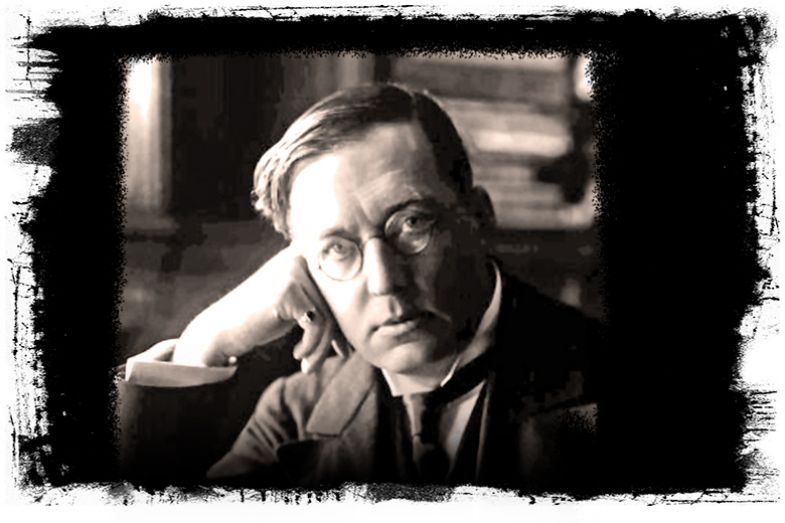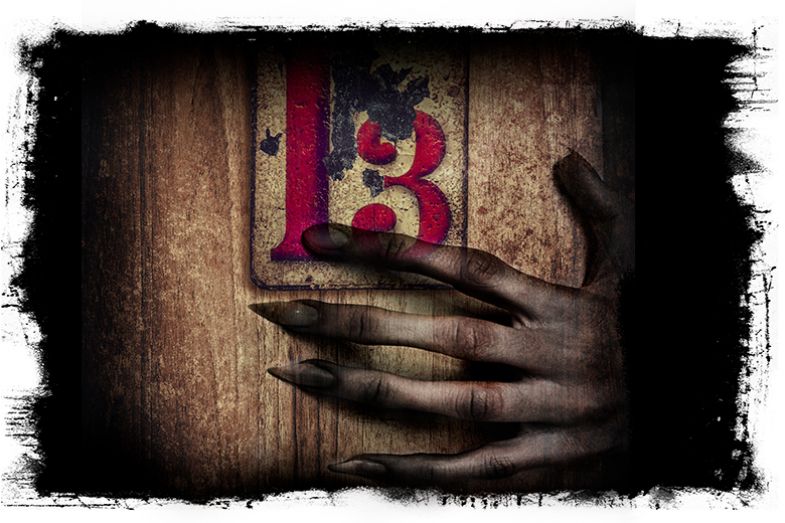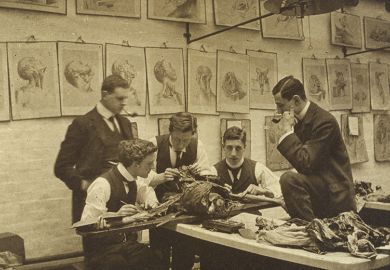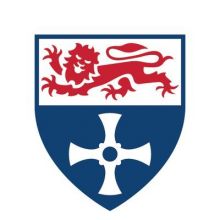The age of Covid has conjured up strange, uncanny new creatures. Think of the “anti-maskers” and assorted “Covidiots” seemingly lurking about every street corner and shopping centre queue. There are good reasons to be wary of venturing outdoors.
Yet many traditional sanctuaries of learning (and social distancing) have been closed off for much of the year. Academics deprived of their fix of rare manuscripts may be inclined to rush back to those libraries and archives that have reopened – or pinch the skeleton key and sneak back into those that haven’t. But with Halloween upon us and the nights drawing in, it would be wise to pay attention to the warnings delivered by the esteemed academic and ghost story writer M. R. James (1862-1936, pictured below).
Montague (“Monty”) Rhodes James was the classic University of Cambridge don of his day – Eton-educated and a medievalist by training, he served as both the provost of King’s College (1905-18) and the vice-chancellor of the university (1913-15). He was something of a bibliomaniac, spending a good portion of his life cataloguing manuscripts in university libraries and visiting archives and cathedrals in Europe during cycling vacations. Although he was a bachelor and enjoyed his own company, James was also a very sociable person and would have struggled with the lockdown and the closure of his beloved rooms at King’s.

Despite his extensive scholarly achievements, James is best remembered today for his ghost stories, widely considered to be classic examples of the genre. He began writing them so he could spruce up the social gatherings of students in his rooms known as the “Chitchat Club”. His first published tale – Canon Alberic’s Scrap-Book – was originally read aloud at a candlelit gathering on Halloween in 1893, a scene memorably recreated by Christopher Lee in his 1970s BBC television series A Ghost Story for Christmas. This story became the prototype for James’ “antiquarian” style of supernatural fiction, with a plot involving an English tourist buying a cursed manuscript from the sacristan of the cathedral of Saint-Bertrand-de-Comminges in southwestern France.
Traditionally, the main protagonist in English literary ghost stories was a child, clergyman, aristocrat or convalescent. This is because ghostly occurrences don’t tend to happen among people who are consciously working – in a factory, office or lecture theatre, for instance. Rather, they occur when characters are in a sensitive state or in locations such as rural mansions, churchyards or abandoned train-lines. But, self-assured scholar and man of independent means that he was, James did not see academic work as work at all – he found it far too pleasurable – and so his protagonists are academics and antiquarians who follow their nose and journey beyond their home institutions in search of knowledge.
In many ways, the over-educated bachelors that feature in James’ ghost stories have a void in their lives that they attempt to fill by collecting, cataloguing, digging up or otherwise unearthing the past. “The endless process of collecting and arranging”, the American literary scholar Jack Sullivan argued in his 1980 book Elegant Nightmares: The English Ghost Story from Le Fanu to Blackwood, “gives the characters an illusory sense of order and stability, illusory because it is precisely this process which evokes the demon or the vampire”. James’ academics discover that there is a “malice” in the inanimate objects of academic research and that they cannot possess old engravings, manuscripts or antiquities, but rather come to be possessed by them, drawn into a malevolent game of cat and mouse. Despite James’ personal love of archives and libraries, the dominant moral running through his ghost stories is be careful what you wish for: attaining academic objects of desire might just cost you your soul.
This conflict is expressed in the many almost sexual games between the ghost and the “curious” researcher throughout his stories. For instance, the exemplary tale ‘Oh, Whistle, and I’ll Come to You, My Lad’ reaches its climax as a ghost of crumpled linen rises threateningly from the bed opposite a Cambridge professor. The most horrible moment in The Treasure of Abbot Thomas occurs when the monstrous ghost of the abbot puts his tentacled arms around the neck of the medieval scholar, Mr Gregory. And A School Story ends with the corpses of a demon and a Latin teacher wrapped in each other’s arms. These experiences serve as stern moral lessons for those who cannot resist the temptations of the archive. As James himself wrote, one aim of the ghost story is to suggest “If I’m not careful, something of this kind may happen to me!”
In the tale Number 13, an academic named Anderson goes on a trip to the Danish National Archives in Viborg to research the last days of Roman Catholicism in Denmark. He checks into the spacious room number 12 in the local inn and heads to the archive to examine correspondence relating to the “malicious” practices of a 16th-century divine named Nicolas Francken. For two nights Anderson is disturbed in his – now seemingly smaller – room by the frightening sounds coming from room 13 next door: “It was a high, thin voice…and it seemed dry, as if from long disuse. Of words or tune there was no question. It went sailing up to a surprising height, and was carried down with a despairing moan as of a winter wind in a hollow chimney, or an organ whose wind fails suddenly. It was a really horrible sound.”
On complaining of this disturbance, Anderson is told by the innkeeper that no such room exists owing to the superstitions of visitors. When the innkeeper is actually taken to the door of number 13 by the frazzled and incredulous Anderson, a ragged grey-haired arm emerges to claw at the pair before the door shuts again – and “a low laugh was heard”. The next morning, and at the cost of his floorboards, the innkeeper finds a small copper box under the wall dividing rooms 12 and 14. Inside is a short vellum document written in an indecipherable language, but apparently having satanic connotations relating to Nicolas Francken. Anderson, we suspect, is never the same man again after this research trip.

The Jamesian academic, then, resembles the literary figures the American poet and critic Paul Zweig described in his 1975 book The Adventurer: The Fate of Adventure in the Western World – characters who “discover their vulnerability to the demonic element…[Their] ties to conventional reality have been loosened, and this provides [them] with a terrifying personal knowledge of the world beyond man”. Number 13 ends with a reference to the legend of Daniel Salthenius, who may have sold his soul to Satan as an undergraduate, but was certainly made professor of Hebrew at Königsberg in 1732. Whether the two events are connected is uncertain, but visitors to Uppsala University Library today can view contracts written in blood and signed by Salthenius, pledging his soul to Satan in return for riches.
There are few academics who have not raged against Reviewer 2, or felt deep pangs of hurt at yet another letter rejecting their application for a position or grant. Despite the often brutal treatment of his academic characters, James believed there were always ways and means of getting one’s own back.
This can be seen in Casting the Runes, where we are introduced to Mr Karswell, a wealthy independent scholar of the occult who retains an overdeveloped notion of his intellectual self-worth. In a dark twist on the familiar aphorism – “publish or perish!” – Karswell is also in the habit of actually doing something many scholars must have fantasised about: murdering peer reviewers who have advised academic journals and societies against his work. When the latest historical society declines his offer to read his paper, “The Truth of Alchemy”, at their next meeting, he sets his sights on its reviewer, Edward Dunning, who described the paper as “perfectly hopeless”.
Karswell tracks Dunning down to the manuscript room of the British Museum, where he slips into his portfolio a piece of paper, a runic curse that has the effect of “bringing its possessors into very undesirable company”. Poor Dunning starts to feel unwell and goes home to an empty house whose electrical supply has gone dead. As he reaches for the matches under his pillow, his hand encounters “a mouth, with teeth, and with hair about it, and, he declares, not the mouth of a human being. I do not think it is any use to guess what he said or did; but he was in a spare room with the door locked and his ear to it before he was clearly conscious again. And there he spent the rest of a most miserable night, looking every moment for some fumbling at the door: but nothing came.”
Figuring out that he has been cursed, Dunning enlists the help of an ally who had previous dealings with Karswell, and they manage to pass the curse back to its originator while on the train to Dover. Karswell boards the boat to France followed by “another gentleman” and is later mysteriously killed by some falling masonry in front of St Wulfram’s Church in Abbeville. This tale is unique in James’ collections for the fighting spirit of Dunning, a respected and established scholar who defeats an adversary who seems to stand for imposture and – heaven forbid – amateur scholarship.
However, the most spectacularly evil academic in the Jamesian world is Lost Hearts’ Mr Abney, a man “wrapped up in his books” who specialises in the religious beliefs of the later pagans. When not penning articles on ancient superstitions, however, Abney kills young children in order to increase his life and knowledge. He does this by burning their hearts to ashes and mingling them “with about a pint of red wine, preferably port”.
Abney dislikes the word “murder” – one suspects he would prefer “research”. More remarkably, he also displays a nonchalant attitude towards the spectres that inevitably haunt him: “Some annoyance may be experienced from the psychic portion of the subjects, which popular language dignifies with the name of ghosts. But the man of philosophical temperament – to whom alone the experiment is appropriate – will be little prone to attach importance to the feeble efforts of these beings to wreak their vengeance on him.”
Back in the real, 21st-century world of mounting to-do lists and uncooperative digital platforms, academics’ philosophical temperaments might incline them to dismiss the existence of ghosts altogether. But with the coronavirus keeping the archives' vaults even more lonely and cobweb-prone than usual, even the most intrepid medievalist visitors might do well to heed M. R. James’ warning and check over their shoulder every now and then when alone in the stacks – especially this week.
Is that a colleague over there at the reading desk wearing a university-branded face mask? Or something even more terrifying? As another well-known Old Etonian – UK prime minister Boris Johnson – puts it: we must stay alert.
Shane McCorristine is a lecturer in modern British history at Newcastle University. His latest book is The Spectral Arctic: A History of Dreams and Ghosts in Polar Exploration (2018).
POSTSCRIPT:
Print headline: What lurks in the shadows
Register to continue
Why register?
- Registration is free and only takes a moment
- Once registered, you can read 3 articles a month
- Sign up for our newsletter
Subscribe
Or subscribe for unlimited access to:
- Unlimited access to news, views, insights & reviews
- Digital editions
- Digital access to THE’s university and college rankings analysis
Already registered or a current subscriber?






